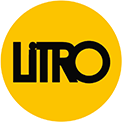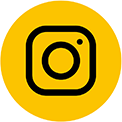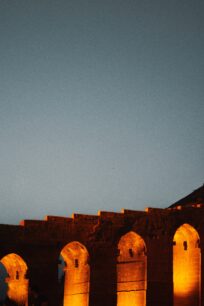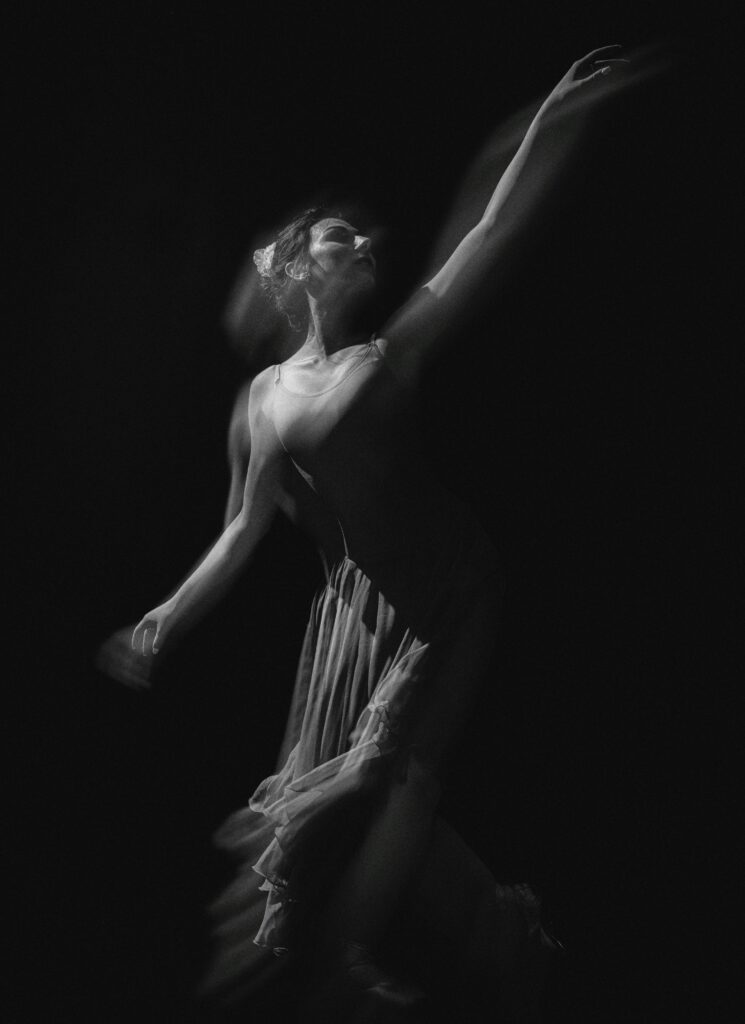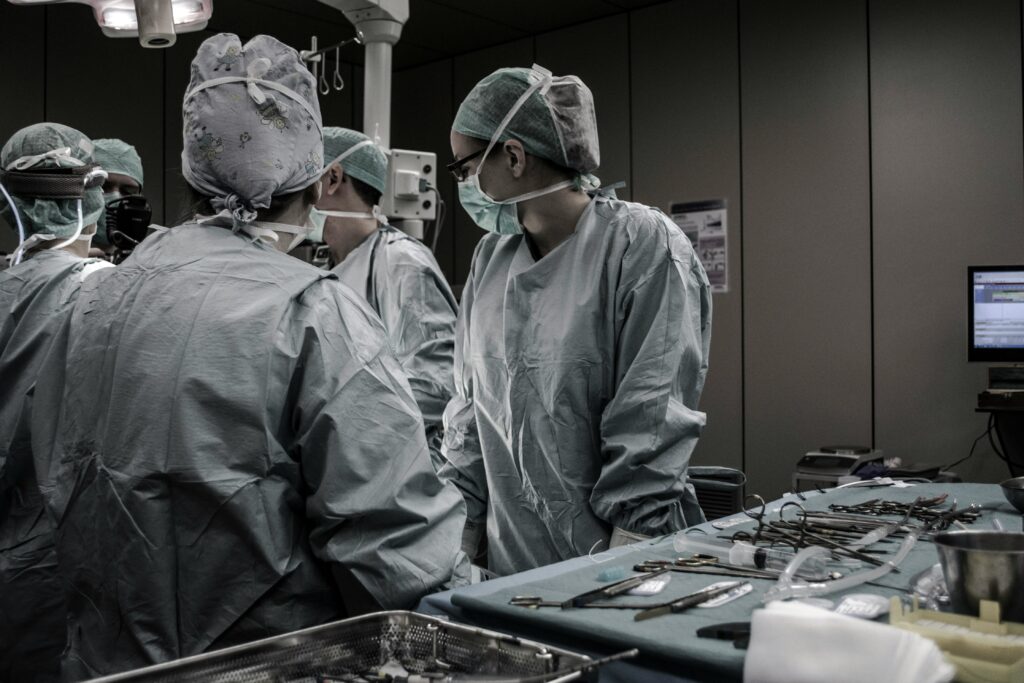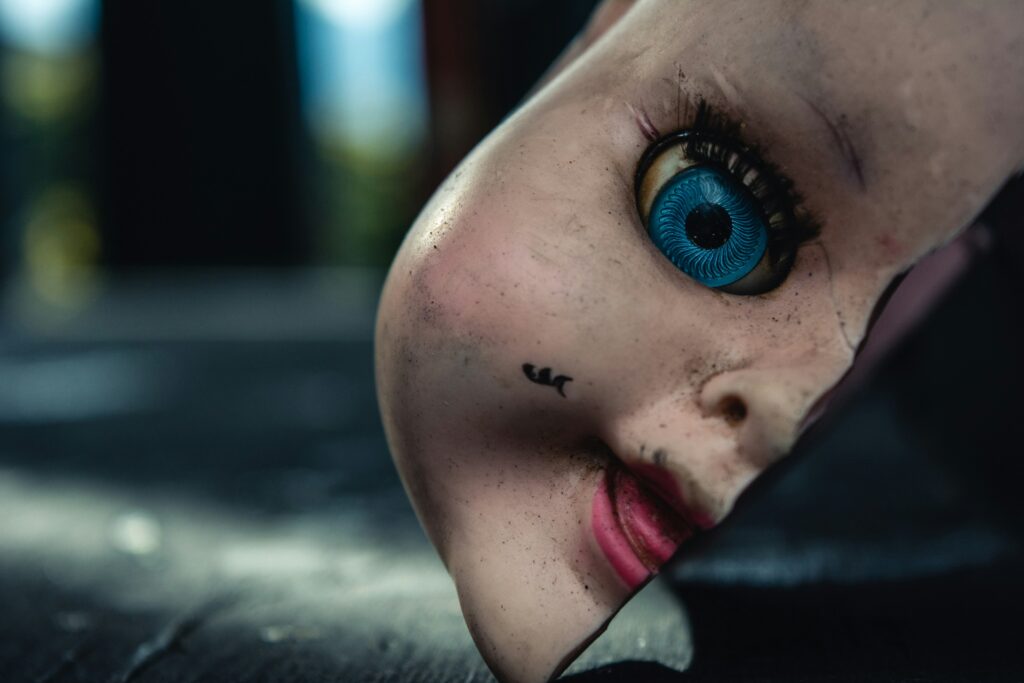The Doctor and the Pharmacist
, January 3, 2024
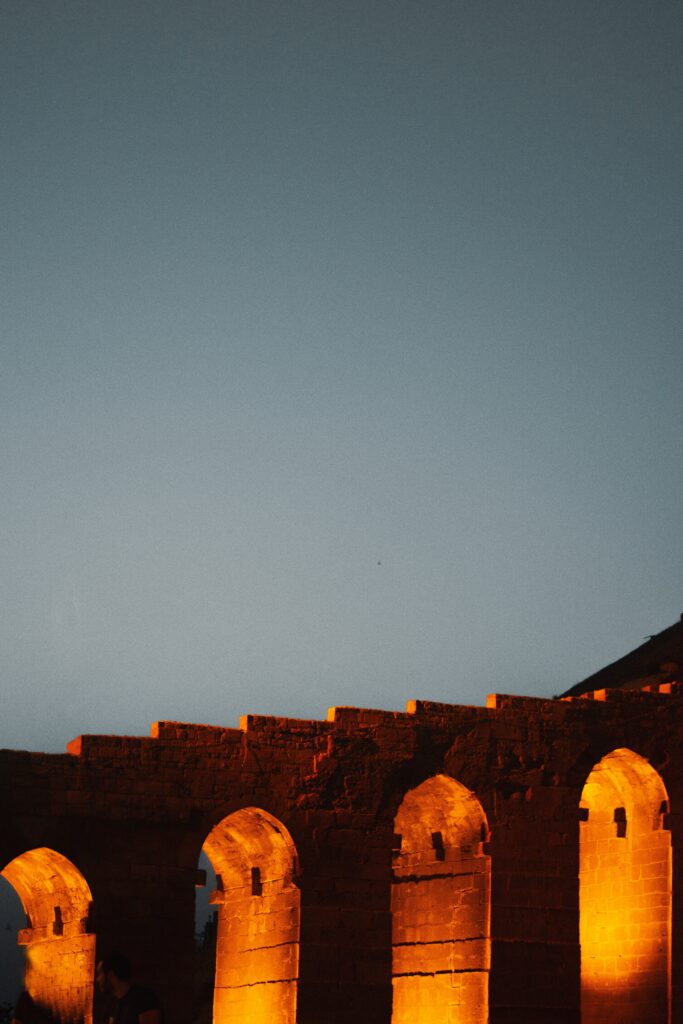
In February 2013, two years after the revolt against the regime of Syrian President Bashar al-Assad had begun, it was already lost; I just didn’t know it. I’m not sure my colleague and translator, Omar, knew it either when we drove into Aleppo from Hatay, Turkey, that month. It would take a bad cough and an evening of chance encounters through a scourged city to understand.
Government forces occupied one half of Aleppo when we arrived. We stayed in the other half, the one controlled by rebel fighters. We had no electrical power. The stucco walls of our apartment held the damp. We moved in like squatters. At night, we huddled in blankets before a fireplace, watched our breath drift, and listened for government planes, ready to scramble for cover, although there was no safe place to hide from an aerial bombardment. I wondered about the family that had lived here. Plates remained on a dining room table as if at any moment the family would emerge from a back room and sit down for dinner. Omar didn’t know them. Neither did the Free Syrian Army fighter who escorted us to the apartment. He assumed they had fled the fighting.
After a few days, I developed a cough. Omar worried it might develop into something serious, like pneumonia, but I wasn’t worried. The brittle air of the Syrian winter had irritated my lungs, nothing more, I thought, but it was a distraction. One night when I could not stop coughing, Omar insisted I see a doctor. I agreed. We left the apartment, made our way through the dank hall and down a littered stairwell. It echoed with the sound of our feet and was so dark I couldn’t see Omar ahead of me. We opened a metal door to the road and began walking, hunched against the cold. Dim flickers of light greeted us, rising and falling in the pitch-dark to the strained rhythms of overused generators. I pulled my scarf to cover my nose and mouth and stifled a cough. We heard far-off, scattered gunshots, pop-pop, and then nothing, then more gunshots and another silence extending into the black evening. We passed the fractured corpses of bombed buildings and their spilled entrails: sofas, chairs, shoes, cabinets, dolls and other toys, thinly covered with fine debris. Rubble crunched under our feet with each step. Dozens of abandoned cats leaped through the ruins—once pets, now their wide, feral eyes flashed, disembodied in the gloom.
A bare lightbulb in the ceiling of a barbershop haloed two empty chairs. Three men stood by a shelf heating water on a hotplate in a chipped enameled pot. A noisy generator shook at their feet. One of the men noticed us. Come have tea with us, he called, and we joined them. The man held his big hands over the steaming pot, the coils of the hotplate bright red. Dark lines of dirt striped the sleeves of his red sweater. He rubbed his fingers, took a rag and wrapped it around the handle of the pot, poured two cups of tea, and handed them to us. Then the men picked up their conversation as if we had not interrupted them, as if we were not there at all.
The situation is not so dangerous, the man who gave us tea said, but we can’t eat well. There is no electricity. The people have left the area. The support is weak. We have to choose the poorest families to help.
Another man pressed a thumb against lips wreathed by a gray, pointed beard and wiped the corners of his mouth with chapped fingers. I don’t care about me, he said, but my sons have to eat. I borrow money. The Islamic Youth Organization hands out flour. They give us about two bags. We need bread to live.
The third man nodded. He cleared his throat, spit out the door, turned back, and raised his cup with both hands and stared into it. I have not talked about freedom for fourteen years, he said after a long moment. I don’t want to create a headache for myself now by getting my hopes up. My house was shelled. One room was destroyed. The government is sending us a message: Without Assad, you will have no milk, food, schools, hospitals. Come back to us. Think again or die.
Omar and I finished our tea and thanked them. We set our cups on a shelf beside a glass that held scissors and an electric razor and resumed our walk, blinking against the grit drifting in the air, careful to avoid stepping into holes in the pavement that could break an ankle. An upheaval of brick and concrete like the aftermath of an earthquake marked spaces that once held homes and shops. Children stepped out from the wreckage, clutched at our clothes, and appealed for food. I felt the weight of their bony fingers tugging at me before they let go. The silhouettes of men hobbling on crutches yawned upward, rising like strife itself, and then receded as they took the children with them.
A clinic stood on the corner of an alley in the neighborhood of Al-Mashhad. Inside, women bundled in layers of clothing sat with their children on the cracked tile floor, cocooned in blankets. The boys and girls sniffled, their noses and eyes crusty with discharge. A lightbulb suspended from the ceiling lit the interior and the worn expressions of the women in a pale haze. A man with a stethoscope around his neck appeared from a black hallway. He wore a blue lab coat too large for his lean frame. The haggard expression on his wan face suggested he had not slept for hours, perhaps days. A doctor, I presumed. Omar called him over. They spoke and then the doctor waved me into a room. Dust and cobwebs covered two green, glass cabinets. Brown jars with curled labels filled the shelves. The doctor motioned for me to sit on a metal exam table. Omar told me he spoke English and left the room.
Why are you here? the doctor asked.
I have a cough.
No. Why are you in Aleppo?
I’m a journalist.
Ahhh, he responded. TV?
No, print.
He pressed the stethoscope against my coat and asked me to take deep breaths. I stared at him, confused. He moved the stethoscope across my chest and frowned.
I can’t hear your heart, he said.
How long have you practiced medicine? I asked him.
He shrugged as if he did not understand the question. I removed my coat and sweater and my long-underwear top and exposed my chest. He smiled, pleased, I assumed, that I had removed my clothes without acknowledging the mistake he had just made, and he pressed the diaphragm of the stethoscope over my heart. I cringed against the cold metal.
You are fine, he said.
He stepped over to one of the cabinets, swiped at a cobweb and opened the door and inspected the shelves until he found a small bottle and offered it to me. I looked at the clear liquid inside.
For your cough, he said.
How much do I take?
How much do you think?
I don’t know.
It doesn’t matter, he said. Whatever you want.
I offered to pay him but he waved my money away.
Go with God, he said. Tell the world Syria is dying.
He followed me out to the hall. I found Omar leaning against a wall. I told him about my examination. He laughed.
Syrian doctors, man, he said.
I don’t think he’s a doctor.
No, he agreed. Maybe he was studying medicine, and now the war has made him a doctor. Or maybe he is a crazy man who imagines himself as a doctor. Nothing is normal now.
He said he would take me to a pharmacist he knew to check the medicine the doctor gave me. We followed a street crowded with men, women, and children. Sheared-off walls stood witness to the explosive power that had cleaved a building in two. Graffiti on a white sheet suspended from one exposed room read, Friends keep going, freedom, victory. There is no God but Allah.
At the sound of a plane, we started running. A little boy screamed and vomited. An older girl dragged him by the hand until through some unspoken awareness we all stopped, arms flailing, and looked up at the speck of metal passing overhead. Nothing. Just a plane. A civilian plane.
We resumed walking beside the girl who had held the hand of the boy sickened by fear. He was her younger brother, she told us. Her name was Razhada. She was eleven years old. She and her brother had been begging so their parents could buy food. A stained orange scarf framed her thin face. She took it off and wiped puke from her brother’s mouth and his shirt. She said four days earlier she and her family had been asleep when government jets bombed their block early in the morning. She saw people lying on the pavement, ambulances trying to get through rubble-clogged roads. Help me, help me, people called, but no one did. A neighbor lost a son. In the days that followed, she tried to get used to the memories of all she had seen, tried to ignore them when they appeared in her dreams. Some nights she imagined she was screaming but no one heard her, or she saw herself alone in her house feeling safe, unaware a bomb was falling.
Omar stopped at an apartment building at one end of a block. We gave Razhada some money, went inside, and walked up three flights to the roof where I saw a young man doing pull-ups from a bar suspended between two posts. He wore a filthy gray sweatsuit and sneakers without laces. A speed bag and a heavy bag took up one corner. Omar introduced me to the young man’s father, Abu Ibrahim, the pharmacist. The three of us watched his son struggle to complete one last pull-up before he released the bar, dropped to the floor, and began doing pushups. Despite the distractions of war, he works out every day, Abu said, except when there is bombing. He wants to be a boxer. He had participated in a few competitions before the revolution. Abu encouraged him to stay in shape but the war made that difficult. He had the skill, the drive, Abu believed, but may have lost the opportunity.
The sound of a plane. We crouched, ran to the stairs. Abu’s son scrambled on his hands and knees after us. We looked up. Nothing. A civilian plane again. We drifted back. Abu’s son resumed his pushups. We watched him, waiting for the next interruption of the war.
You can get used to everything, Abu said. We are free in this half of Aleppo but it is a very expensive freedom.
I wanted to speak with his son but Abu told me not to disturb him. He didn’t know when he would be able to work out again. He had to take advantage of the quiet moments. He completed twenty-five push-ups, stood up, and paced in a circle, hands on his hips, catching his breath. He walked to the heavy bag, crouched, stepped forward, and threw a right hook. The bag shivered from the blow. He stepped back, bobbed his head right and left, shuffled to one side, and threw another punch.
Abu nodded approvingly. He considered himself a reasonable man. He did not daydream, hoping for the impossible. His son would box or he would not. He couldn’t predict the end of the war anymore than he could have predicted its beginning.
He and his family had just sat down to a dinner of shawarma when three rockets struck three buildings on their block and they knew the war had come to Aleppo. Shrapnel broke against cars and shops like rain. Abu counted one hundred explosions in an hour. When the shelling stopped, he herded his family into their car and drove to a safer area and left them at a friend’s house. He returned to his neighborhood to help whomever he could: the ash-covered and bloodied men and women staggering like marionettes in the hands of an inexperienced puppeteer. Many desperate people tried to get into his car—too many. Some of them even climbed onto the roof but slid off. Since that horrible day, the shelling had slowed. Maybe two or three times a day but not more. One afternoon, a rocket hit a building while he and a friend walked home from the bazaar. They dropped to the ground. His friend began weeping. Ibrahim stood and waited for him to stop crying.
I don’t think the revolution will hold, he said. How can it when Assad has planes to drop bombs and the rebels have none?
Omar frowned. A coughing fit wracked my chest. Omar waited until I stopped. Then he told Abu about my visit with the doctor. He laughed when Omar explained how he tried to listen to my chest through my coat. He showed him the bottle of medicine.
I think your doctor was a little bit war crazy, Abu said. This is for diarrhea. You will not shit if you take this.
He walked down the stairs to his apartment returning minutes later with a packet of tablets and a glass of water.
For your cough, Abu said.
He handed them to me. Turning, he observed his son punch the heavy bag—one, two; one two—until he stopped, glanced up, listened. Abu looked, too, as did Omar and I, our shoulders rigid. Nothing. Abu’s son started hitting the bag again. I coughed, shook a tablet into my left hand.
How many do I take? I asked, and how often?
Abu continued squinting at the empty sky before he lowered his head and faced me.
It doesn’t matter, he said.
You may also like
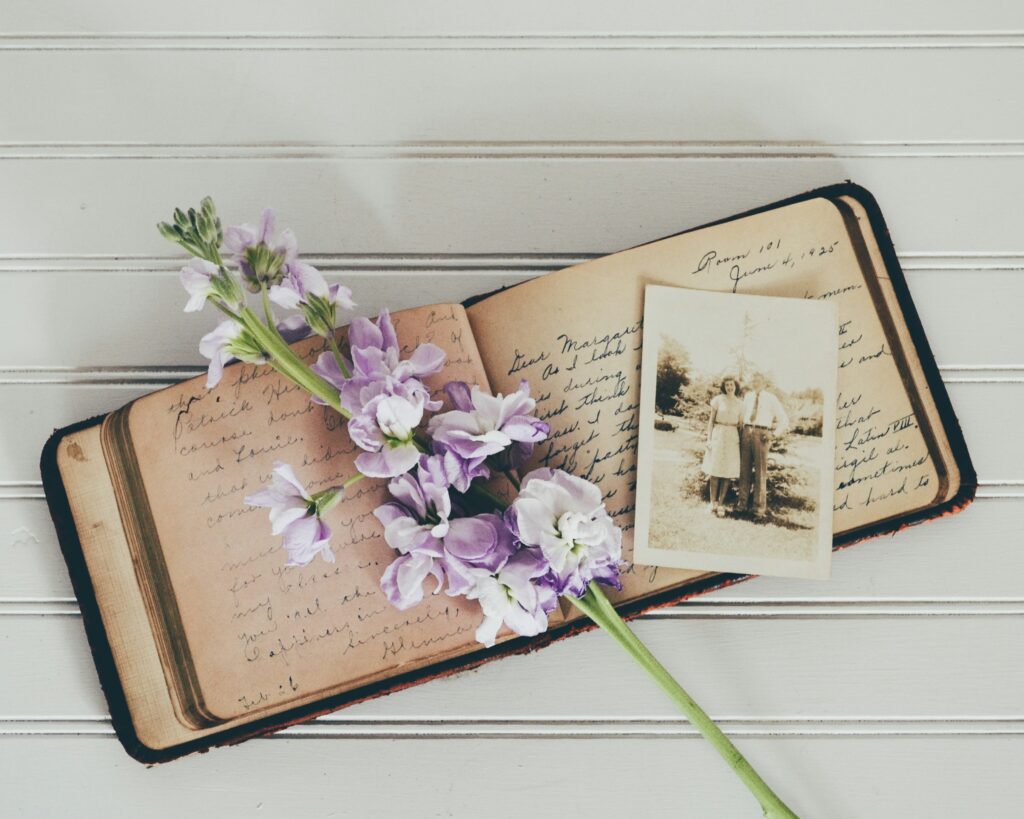
Eyes of the Beholden
Unspoken desires linger in the shadows of a teacher's life, revealed through art
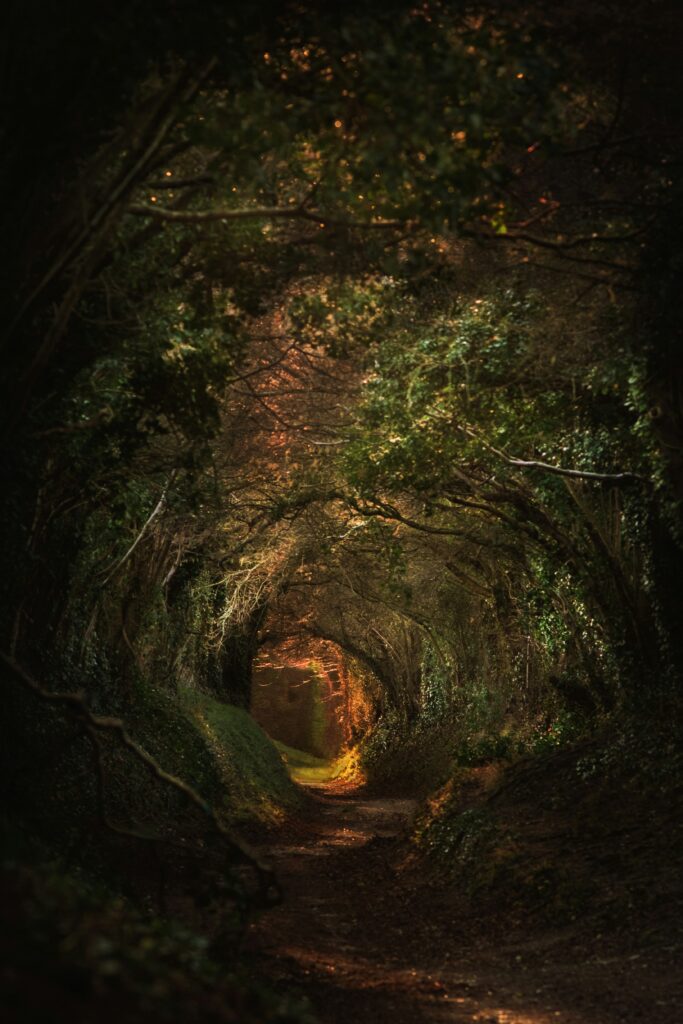
LOST
Bessie's odyssey through stormy nights, lost love, and secret graveyards unfolds with haunting beauty in "Lost" by Sandra Dennis.
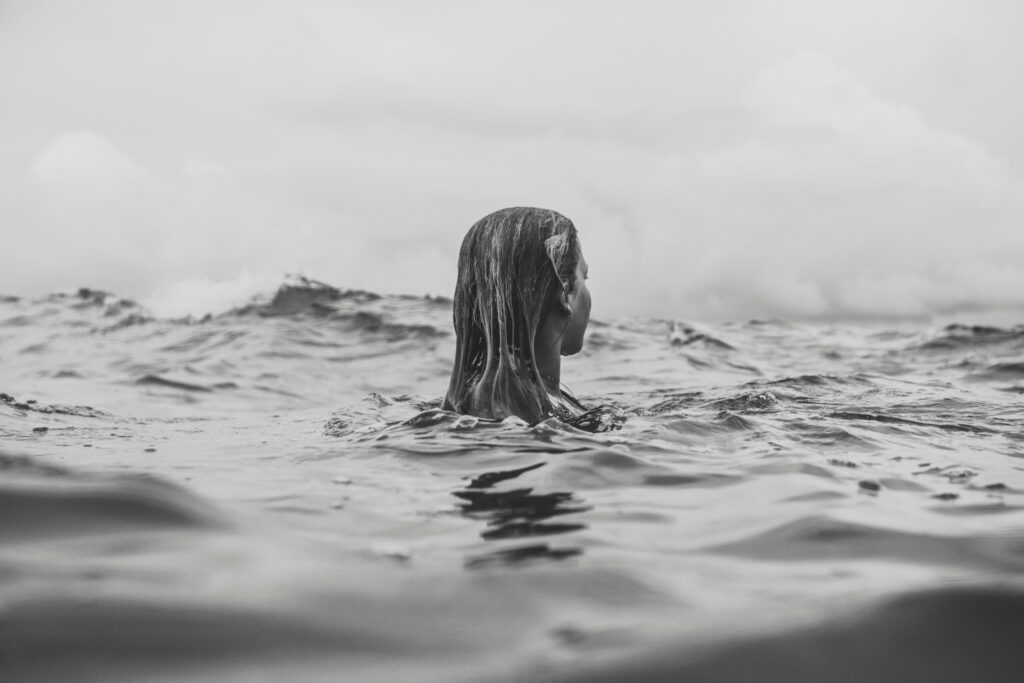
Water Rising
Amidst a flood, a woman grapples with the past, and confronts the consequences in this haunting narrative of resilience.
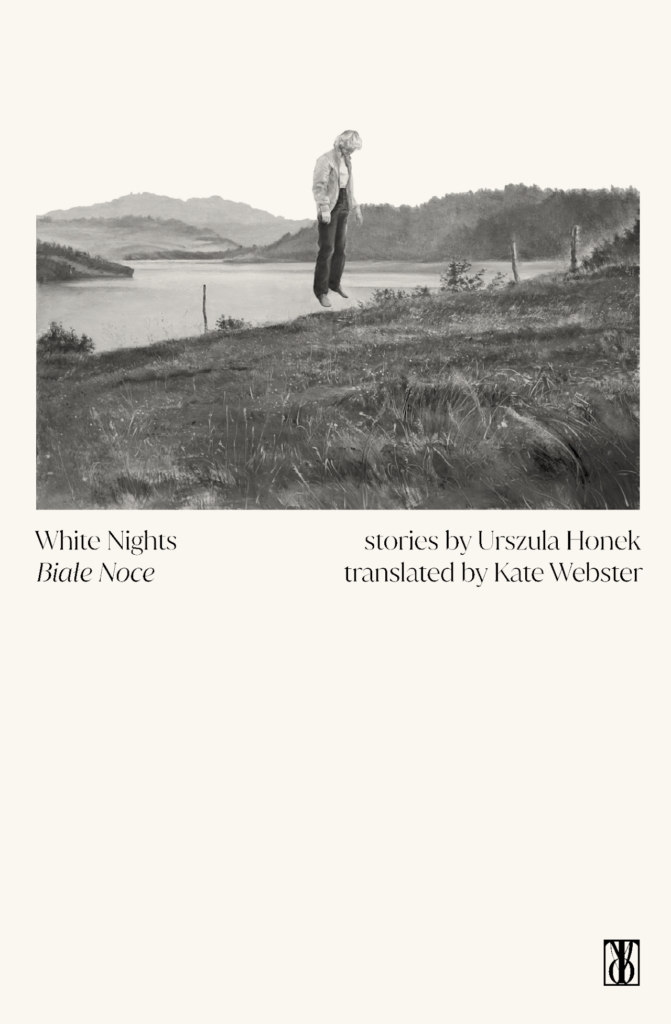
Book Review: White Nights by Urszula Honek
The debut short story from Polish writer Urszula Honek, White Nights, is akin to reading an account of a haunted place – one that is beautiful and devastating in equal
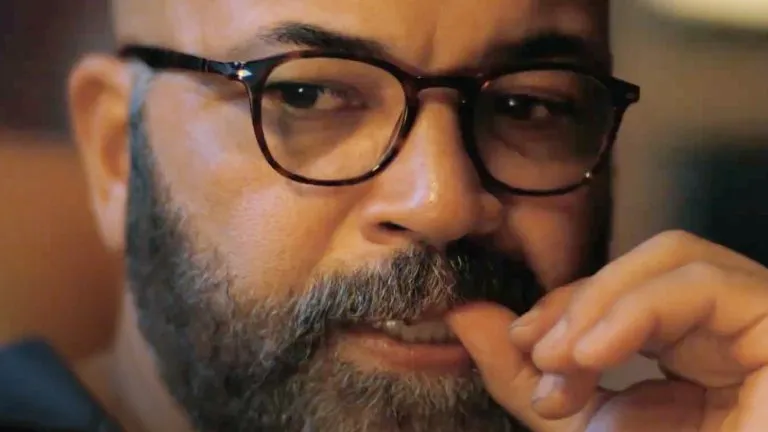
Beyond the Surface: The Multifaceted Lives of ‘American Fiction’
In essence, "American Fiction" and the experiences it draws from remind us that we are indeed more than the sum of our parts.
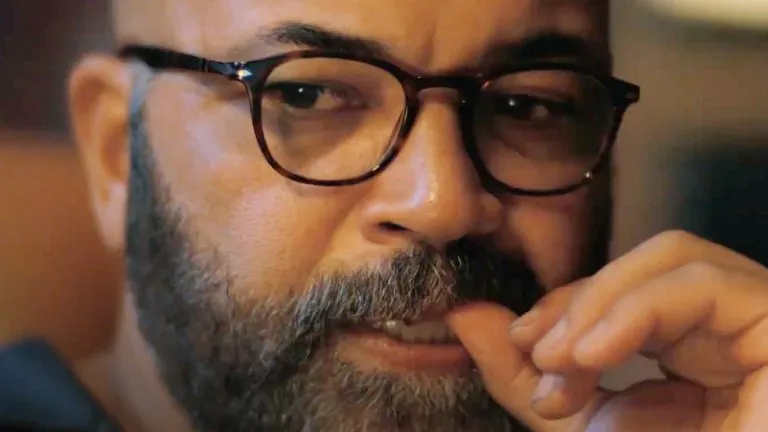
Beyond the Surface: The Multifaceted Lives of ‘American Fiction’
The narrative of “American Fiction” unfolds with a dual focus: it not only scrutinizes the unique pressures faced by Black creatives but also delves into the intricate and sometimes tense…
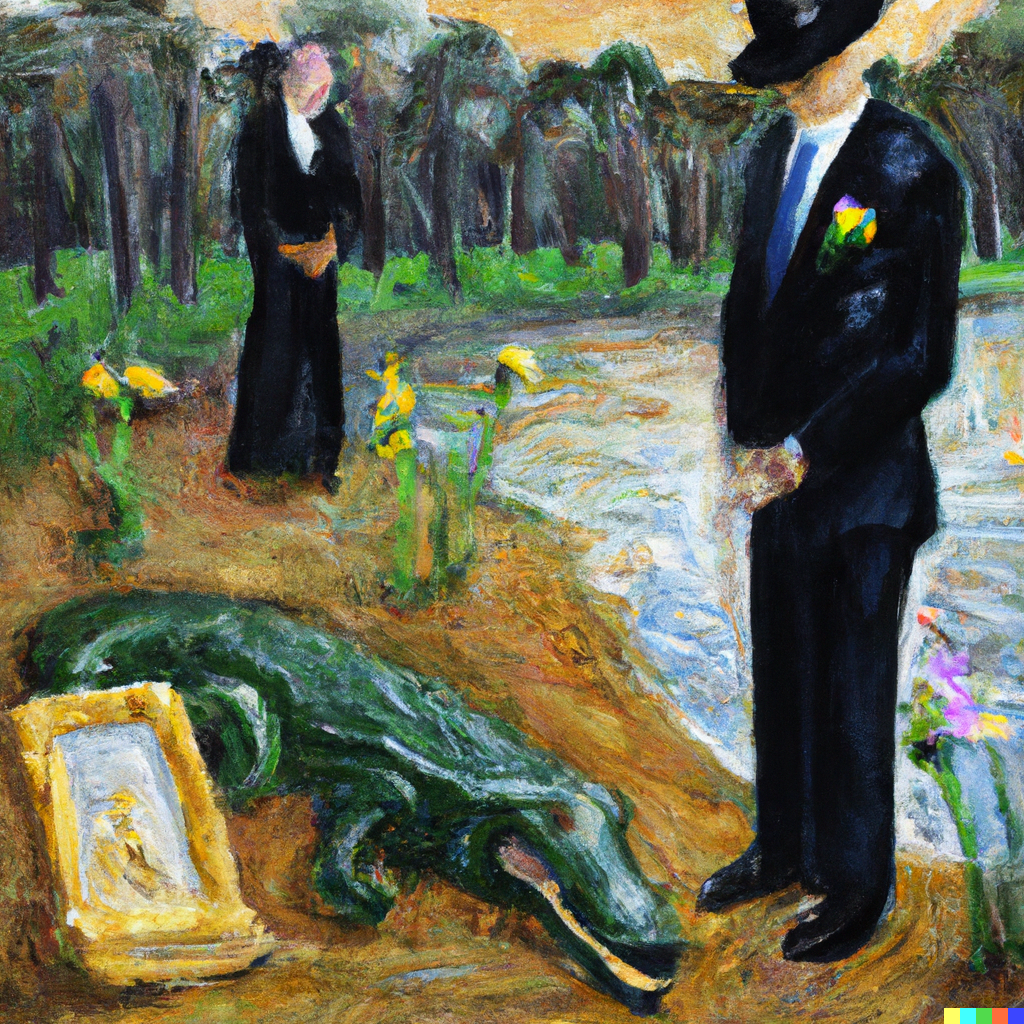
Uncle Bobby’s Funeral
Reluctant family faces the eccentricities of Uncle Bobby's funeral in swampy Chipley.

